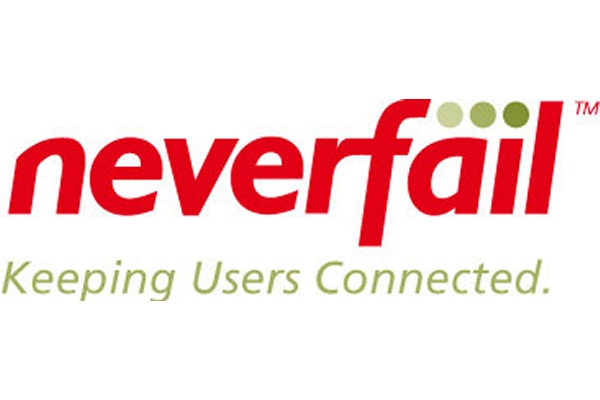Take the Doubt out of Disaster Recovery
Simon Kelson, MD at Atlanta Technology advises resellers to support SMBs on the best disaster recovery soloutions to fit their needs, rather than scaring them into a sale.

Stay up to date with the latest Channel industry news and analysis with our twice-weekly newsletter
You are now subscribed
Your newsletter sign-up was successful
Introduction
Fear, uncertainty and doubt have always provided a powerful sales tactic. Just look at the sales of antibacterial hand spray in the wake of swine flu, or the speed at which bread disappears off the shelves at the hint of heavy snow. In the same way, the FUD factor (fear, uncertainty, doubt) has been favoured by disaster recovery specialists. They quote analysts and statistics to frighten SMBs into believing that without the proper infrastructure in place, a catastrophic loss of data will kill their business.
Take for example the Department of Trade and Industry’s statement that “70 percent of businesses that suffer a major data loss are out of business within 18 months.”
Face the Fear
Let’s stop spreading fear and look at disaster recovery from a business perspective. When your top priority is keeping the business running and employees are stretched, routine tasks, such as backing up data, updating security patches and archiving email can be put on the back burner.
But they shouldn’t be put on the back burner.
If your server fails, your head office floods, if the workmen down the road dig up your broadband cable, then you have to have a strategy for getting your business operational in the shortest time possible. In many common disaster recovery scenarios, data back-ups can be a day old and databases can take days to populate. This can lead the business to fail to meet its recovery time objective and recovery point objective, leading to data being permanently lost; damage to the business and loss of reputation with customers.
Stay up to date with the latest Channel industry news and analysis with our twice-weekly newsletter
Remove Uncertainty
Let’s face it, the real barrier to adoption of adequate back up and restore and disaster recovery plans is cost and this is where resellers can add most value. If resellers can guide end user companies on the most cost effective models for securing their data in the face of fire, flood and pestilence then they will be far more likely to build a lasting relationship with that business.
Where smaller businesses identify that CapEx is preventing them putting an adequate disaster recovery plan in place, resellers can guide them towards hosted disaster recovery services. Disaster recovery is ideally suited to cloud based service delivery. If your data is hosted off premise, away from the scene of the disaster, then it can still be accessed by staff working from home, or from alternative premises.
Continuous Data Protection, provided by hosted DR providers, provides continuous back up and server snapshots that are sent securely to the hosted DR datacentre. The use of virtualisation within datacentres means that data from failed servers can be restored within a matter of minutes with no loss of data between the point of failure and restoration of applications and data. It should also be easy to invoke, without any unrealistic limitations or invocation fees.
Overcome Doubt
Conversely, maintaining on-premise server hardware, plus the HR cost of keeping mirrored production and DR servers synchronised, has been proven to be far more expensive than hosting data with a specialist DR provider. However, many IT professionals fear losing control of their data by hosting it with a cloud computing provider.
Again, this is where experienced resellers can help by getting face to face with IT staff and outlining the cost and security benefits of accessing state of the art equipment used by hosting providers, with failover and redundancy built into the service. Resellers can use their technical expertise to explain the multi-layered security used by data centre operators and reassure end user companies that their data is not at risk in the cloud.
Another barrier is lack of experience, by its very nature disaster is an unknown and is therefore difficult to plan for. Once again, a DR specialist reseller can really add value to a company by bringing a fresh perspective and helping customers to think more broadly than the most obvious scenarios that could strike their business.
Steps to creating a DR strategy:
• Select an experienced DR specialist who works with a range of vendors and can advise you on the best combination of solutions for your business
• Work with the specialist to develop a DR plan to present to the board. This should include a business case showing the relative costs of hosting or running the DR infrastructure on-premise
• Work with the specialist to present to your board. Without their buy in it will be difficult to secure the necessary budget and top-down support for the DR plan.
• Communicate the DR strategy to your workforce so that everyone is aware of the contingency plans if a disaster does occur
• Test the plan with key members of the workforce involved
• Make time to regularly review and update the plan with your DR specialist as you business grows and changes
Conclusion
Business Continuity Management provided by hosted service providers in combination with specialist DR channel partners can ensure that businesses have a management framework that captures best practice and allows the customer to focus on core business activity rather than worrying about what might be around the corner.
Resellers that can partner with a company remove fear, uncertainty and doubts about their DR strategy and provide regular updates to the DR plan will be more likely to retain that business and gain service revenue over the longer term as well as securing vendor margins.
By following your guidance and tapping into hosted disaster recovery services, your customers can harness the benefits of the cloud rather than living under one.
-
 CISOs are keen on agentic AI, but they’re not going all-in yet
CISOs are keen on agentic AI, but they’re not going all-in yetNews Many security leaders face acute talent shortages and are looking to upskill workers
-
 Why Amazon’s ‘go build it’ AI strategy aligns with OpenAI’s big enterprise push
Why Amazon’s ‘go build it’ AI strategy aligns with OpenAI’s big enterprise pushNews OpenAI and Amazon are both vying to offer customers DIY-style AI development services
-
 Microsoft suffers second global outage in a week
Microsoft suffers second global outage in a weekNews Tech giant has rolled back another update after it caused further instability with Microsoft 365 services
-
 Neverfail launches Windows cluster disaster recovery tool
Neverfail launches Windows cluster disaster recovery toolNews The disaster recovery vendor adds data replication tools for Microsoft Windows failover clustering, plus a new version of its software that’s being tested with Microsoft's Hyper-V.